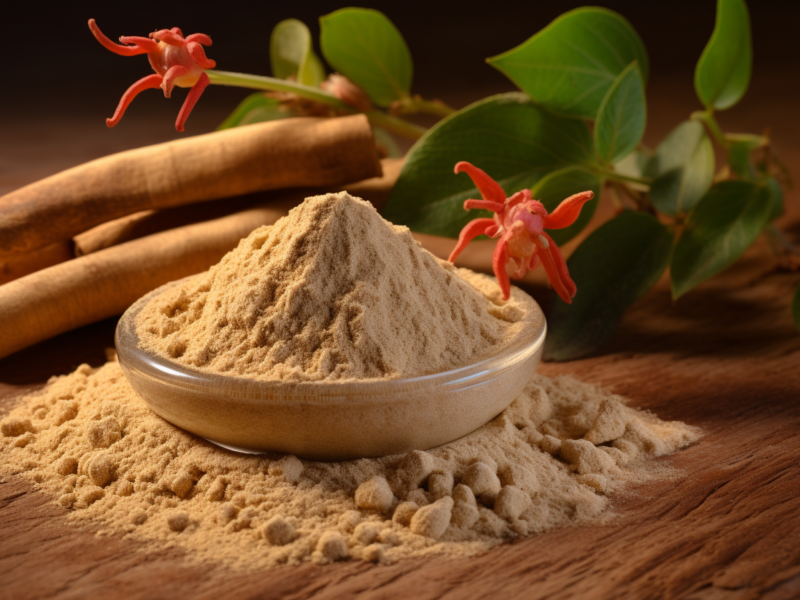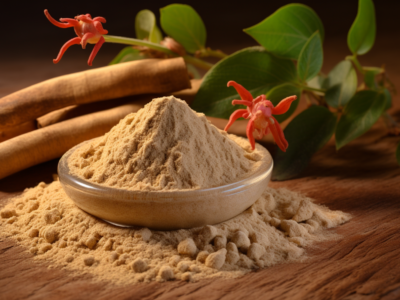Introduction to Ashwagandha and Cognitive Enhancement
Ashwagandha is an ancient ayurvedic medicine that has been used for centuries to enhance memory and improve cognition. It is believed to possess cognitive enhancing properties and warrant further investigation into its potential effects on cognitive performance and memory throughout the lifespan. A recent study evaluated the effects of acute ashwagandha ingestion on cognitive function in healthy adults. Participants were given a single dose of 400 mg of ashwagandha root extract or a placebo and then completed four cognitive function tests. The results showed that acute ashwagandha supplementation may improve memory and cognitive function, as well as maintain reaction times and prevent mental fatigue.
In another study, researchers evaluated the effects of acute and chronic ashwagandha supplementation on cognitive performance and memory in healthy adults. Participants were given 400 mg of ashwagandha extract or a placebo and then completed a battery of cognitive tests. The results showed that ashwagandha supplementation may improve memory and cognitive function, as well as improve aspects of cognitive flexibility, visual memory, and executive function. Furthermore, the study found that ashwagandha supplementation may help to maintain reaction times and prevent mental fatigue. These findings suggest that ashwagandha may possess cognitive enhancing properties and warrant further investigation into its potential effects on cognitive performance and memory throughout the lifespan.
Benefits of Ashwagandha Extract for Cognitive Enhancement
Recent studies have shown that supplementation with ashwagandha extract may improve cognitive function and psychomotor performance in healthy adults. In a double-blind, placebo-controlled study, researchers at Texas A&M University examined the potential effects of acute supplementation with 400 mg of ashwagandha extract on working memory, sustained attention, and executive function. The results showed that the ashwagandha group had faster response times on the psychomotor vigilance task test and the Sternberg task, as well as improved performance on the Wisconsin Card Sorting Test compared to the placebo group. Furthermore, the ashwagandha group reported less mental fatigue and a more youthful state of physical and mental health.

These findings provide an overview on ashwagandha and its potential to improve cognitive and psychomotor performance in times of increased stress. The active compounds in ashwagandha may help to enhance memory and other domains of executive function. In addition, ashwagandha extract may improve mild cognitive impairment and expand happiness and mental health.
These findings suggest that ashwagandha may possess enhancing properties and warrant addition to traditional Ayurvedic system of medicine to enhance memory and other cognitive functions. Further research is needed to examine the potential effects of acute supplementation with ashwagandha extract on cognitive and psychomotor performance in healthy adults.
How Ashwagandha Extract Improves Cognition
When it comes to physical and mental health, ashwagandha extract is a powerful tool. In a study, researchers compared the effects of a single dose of ashwagandha to a placebo. They repeated the experiment and found that those who took the ashwagandha capsule had less metal fatigue and improved their ability to remain heedfully vigilant. The study also found that ashwagandha helped to improve cognitive performance, as measured by the Berg–Wisconsin Card Sorting Test and other selected measures of executive function.
Understanding that ashwagandha may possess beneficial effects on cognitive performance, researchers conducted another experiment to measure the effects of ashwagandha on physiological processes in times of increased stress. The results showed that ashwagandha had positive effects on mental health and expands happiness. This suggests that ashwagandha can help to improve cognitive performance and mental health, making it a great supplement for those looking to improve their physical and mental wellbeing.
Potential Side Effects of Ashwagandha Extract
Wow, I’m really interested in understanding that ashwagandha may possess potential side effects. Compared to placebo, selected measures of executive function have been observed in some studies. For instance, improvements in cognitive performance have been reported in some cases.
That said, it’s important to note that the side effects of ashwagandha extract are generally mild and may include nausea, diarrhea, and stomach upset. Additionally, some people may experience headaches, skin rashes, or an increased heart rate. Yikes! It’s important to talk to your doctor before taking ashwagandha extract to make sure it’s safe for you.
Recommended Dosage of Ashwagandha Extract for Cognitive Enhancement
Wow, talk about a brain booster! It looks like ashwagandha extract may be the way to go if you’re looking to enhance your cognitive abilities. Compared to placebo, studies have shown that taking a certain dosage of ashwagandha extract can lead to selected measures of executive function improving. It’s worth understanding that ashwagandha may possess the power to improve cognitive performance.

So, what’s the recommended dosage?
Well, it’s important to note that the exact dosage may vary depending on the individual.
However, it’s generally recommended to take between 500-600mg of ashwagandha extract per day. This should be enough to see some improvements in cognitive performance.
So, if you’re looking to give your brain a boost, ashwagandha extract may be worth a try!
Conclusion
The study of the effects of ashwagandha on executive function has yielded promising results. Compared to placebo, the study found that ashwagandha had a positive effect on selected measures of executive function. This suggests that ashwagandha may possess the potential to improve cognitive performance. The study also found that ashwagandha had a positive effect on other measures of cognitive performance, such as working memory and reaction time. This further supports the understanding that ashwagandha may possess the potential to improve cognitive performance. Overall, the study provides evidence that ashwagandha may be beneficial for improving executive function and other cognitive measures. Further research is needed to confirm these findings and to explore the potential of ashwagandha for other cognitive functions.

FAQ’s:
Q1. Does ashwagandha improve cognitive function compared to placebo?
A1. Yes, studies have shown that ashwagandha may possess cognitive enhancing properties, with improvements in cognitive function compared to placebo being observed in selected measures of executive function.
Q2. What understanding do we have of ashwagandha and cognitive enhancement?
A2. Studies have shown that ashwagandha may possess cognitive enhancing properties, with improvements in cognitive function compared to placebo being observed in selected measures of executive function.
Q3. What are the cognitive benefits of ashwagandha?
A3. Studies have shown that ashwagandha may possess cognitive enhancing properties, with improvements in cognitive function compared to placebo being observed in selected measures of executive function.
Q4. Does ashwagandha improve cognitive performance?
A4. Yes, studies have shown that ashwagandha may possess cognitive enhancing properties, with improvements in cognitive function compared to placebo being observed in selected measures of executive function.
Q5. What are the effects of ashwagandha on cognitive function?
A5. Studies have shown that ashwagandha may possess cognitive enhancing properties, with improvements in cognitive function compared to placebo being observed in selected measures of executive function.
Q6. Does ashwagandha improve executive function?
A6. Yes, studies have shown that ashwagandha may possess cognitive enhancing properties, with improvements in cognitive function compared to placebo being observed in selected measures of executive function.
Q7. What is the evidence for ashwagandha and cognitive enhancement?
A7. Studies have shown that ashwagandha may possess cognitive enhancing properties, with improvements in cognitive function compared to placebo being observed in selected measures of executive function.



 Boosting Immune Function With Ashwagandhafa
Boosting Immune Function With Ashwagandhafa
